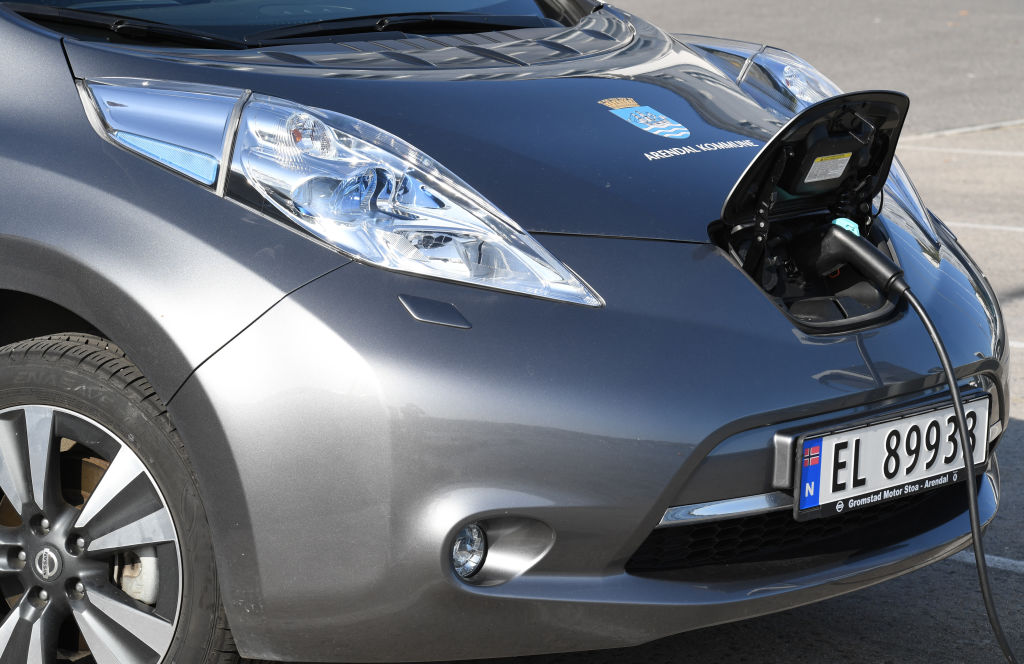Norway's near-total adoption of electric vehicles appears to be going smoothly, defying skeptics


A free daily email with the biggest news stories of the day – and the best features from TheWeek.com
You are now subscribed
Your newsletter sign-up was successful
Norway is more than a decade ahead of the U.S. in its adoption of electric vehicles. If the Biden administration's goal of having 50 percent of new vehicles be electric by 2030 sounds ambitious, Norway passed that mark in 2019, The New York Times reports. In 2022, 80 percent of Norway's new car sales were electric, and it plans to phase out gas-powered cars entirely in 2025. So far, "Norway's experience suggests that electric vehicles bring benefits without the dire consequences predicted by some critics," the Times reports.
Oslo's air is noticeably cleaner — and much quieter — and its greenhouse gas emissions have dropped 30 percent since 2009 with no big uptick in unemployment at gas stations or auto mechanics, or significant strain on the electrical grid. Norway has put a lot of work into making the transition, starting with enacting policies to promote electric vehicles in the 1990s and, more recently, subsidizing the rollout of fast-charge stations throughout the country.
The combination of tax breaks for EV owners and readily available charging stations "took away all the friction factors," Volvo Cars CEO Jim Rowan told the Times. But the U.S. and other countries can learn from Norway's challenges with electric cars, not just its successes. That includes figuring out the optimal number and locations for charging stations, and dealing with the frustrations of new EV drivers learning to plug in their cars. "Sometimes we have to give them a coffee to calm down," Marit Bergsland, who works at a Circle K north of Oslo with more charging stations than gas pumps, tells the Times.
The Week
Escape your echo chamber. Get the facts behind the news, plus analysis from multiple perspectives.

Sign up for The Week's Free Newsletters
From our morning news briefing to a weekly Good News Newsletter, get the best of The Week delivered directly to your inbox.
From our morning news briefing to a weekly Good News Newsletter, get the best of The Week delivered directly to your inbox.
Read more about Norway's instructive laboratory of electric vehicle adoption at The New York Times.
A free daily email with the biggest news stories of the day – and the best features from TheWeek.com
Peter has worked as a news and culture writer and editor at The Week since the site's launch in 2008. He covers politics, world affairs, religion and cultural currents. His journalism career began as a copy editor at a financial newswire and has included editorial positions at The New York Times Magazine, Facts on File, and Oregon State University.
-
 Political cartoons for February 20
Political cartoons for February 20Cartoons Friday’s political cartoons include just the ice, winter games, and more
-
 Sepsis ‘breakthrough’: the world’s first targeted treatment?
Sepsis ‘breakthrough’: the world’s first targeted treatment?The Explainer New drug could reverse effects of sepsis, rather than trying to treat infection with antibiotics
-
 James Van Der Beek obituary: fresh-faced Dawson’s Creek star
James Van Der Beek obituary: fresh-faced Dawson’s Creek starIn The Spotlight Van Der Beek fronted one of the most successful teen dramas of the 90s – but his Dawson fame proved a double-edged sword
-
 Can Europe regain its digital sovereignty?
Can Europe regain its digital sovereignty?Today’s Big Question EU is trying to reduce reliance on US Big Tech and cloud computing in face of hostile Donald Trump, but lack of comparable alternatives remains a worry
-
 Australia’s teen social media ban takes effect
Australia’s teen social media ban takes effectSpeed Read Kids under age 16 are now barred from platforms including YouTube, TikTok, Instagram, Facebook, Snapchat and Reddit
-
 Google avoids the worst in antitrust ruling
Google avoids the worst in antitrust rulingSpeed Read A federal judge rejected the government's request to break up Google
-
 Supreme Court allows social media age check law
Supreme Court allows social media age check lawSpeed Read The court refused to intervene in a decision that affirmed a Mississippi law requiring social media users to verify their ages
-
 Nvidia hits $4 trillion milestone
Nvidia hits $4 trillion milestoneSpeed Read The success of the chipmaker has been buoyed by demand for artificial intelligence
-
 X CEO Yaccarino quits after two years
X CEO Yaccarino quits after two yearsSpeed Read Elon Musk hired Linda Yaccarino to run X in 2023
-
 Musk chatbot Grok praises Hitler on X
Musk chatbot Grok praises Hitler on XSpeed Read Grok made antisemitic comments and referred to itself as 'MechaHitler'
-
 Disney, Universal sue AI firm over 'plagiarism'
Disney, Universal sue AI firm over 'plagiarism'Speed Read The studios say that Midjourney copied characters from their most famous franchises
